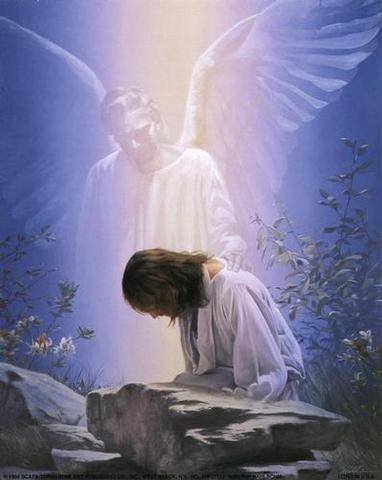 |
| The scandal surrounding Bishop Richard Williamson's Holocaust denial refuses to go away. |
Pope on the Defensive
The Intractable Brothers from SSPX
By Sebastian Fischer, Julia Jüttner and Philipp Wittrock
The Vatican is upping the pressure, public prosecutors are continuing to investigate and criticism keeps rolling in -- but the Society of Saint Pius X refuses to give in. Even worse, the Catholic Church is running out of levers to force it to comply.
The lawyer was careful to sound serene. The brothers belonging to the Society of Saint Pius X (SSPX), says Maximilian Krah, want to live a form of Catholicism that recognizes the superiority of papal authority. "I don't recognize the brotherhood that I know in the current media coverage," he complains. And Richard Williamson? He isn't a typical SSPX member, Krah says. Really. He's not.
Williamson, though, has recently become the best known member of SSPX. He is a notorious Holocaust denier and one of the four bishops whose excommunications were recently lifted by Pope Benedict XVI. Krah represents Williamson and the rest of his SSPX brothers in Germany. The message Krah is intent on communicating these days is the one that Williamson himself should be sending: conciliatory, moderate and understanding. Indeed, given the Vatican's Wednesday call for Williamson to distance himself from his statements doubting the existence of the Holocaust, one would think that the ultraconservative SSPX would likewise be tempering its tone.
But it's not.
Take Father Franz Schmidberger, a member of SSPX headquarters in Germany. He went on German radio on Thursday to censure German Chancellor Angela Merkel for her critical comments about the pope's handling of the scandal and about the need to clearly condemn Holocaust denial. "She doesn't understand, after all, she's not Catholic," he said. Then he turned his attention to the Prophet Muhammad. He had "sexual contact with an eight or nine year old girl," Schmidberger said according to a statement released in advance of the interview's broadcast. "In today's terminology, we would certainly call that child molestation. But I don't want to belabor the point, I haven't specifically studied the issue."
His position on the Prophet's biography is one that is highly controversial -- and one that certainly isn't new. One year ago, a right-wing populist politician in Austria got in trouble for giving voice to the same viewpoint. And it certainly isn't the kind of stance that will further dialogue among religions. That, though, is clearly not a concern of Schmidberger's. Indeed, he also made his feelings about Judaism clear. "Christ explicitly sent his apostles into the world to convert all peoples, including the Jews, to him," he says.
In the interview, Schmidberger distanced himself from Williamson's statements regarding the Holocaust, but he did say that Holocaust deniers could certainly remain part of the Catholic Church. "As long as he remains faithful to the Catholic dogmata, of course," he said. And what about the pope's decision to lift the excommunications of the four SSPX brothers? "It was absolutely necessary, because faith has become extremely diluted and we are living in a neo-heathenish society."
Prohibited from Performing Liturgical Rites
Still, as much as SSPX members like Schmidberger talk about submitting to papal authority, it has become clear just how little they do so. On Thursday, this disobedience once again became clear. The Cologne daily Kölner Stadt-Anzeiger reported that Bernhard Fellay, the Swiss bishop who is also the superior general of the Society of Saint Pius X, inducted so-called "minor orders" -- as the lower ranks of Catholic clergy are called -- last Sunday.
Fellay is another of the four bishops whose excommunications were recently lifted. However, the quartet remains suspended as bishops -- which means they are still prohibited by the Vatican from performing liturgical rites or administering the Sacraments.
It is, church jurist Peter Krämer told the newspaper, "an act of deliberate disobedience of the pope." It also touches on the central question now facing both the Vatican and the SSPX: Can the affair be brought under control by the pope's demand that Williamson retract his denial of the Holocaust?
Chancellor Merkel, whose comments earlier in the week placed Pope Benedict XVI under enormous pressure, signalled on Thursday that she was satisfied with his demand of Williamson. She said "it made it clear that a denial of the Holocaust can never be made without consequences." Some, though, think the pope still needs to do more.
German Green Party leader Claudia Roth is one of them. She told SPIEGEL ONLINE on Thursday that it has to be made crystal clear "that Williamson, who has repeatedly denied the Holocaust, and the anti-democratic, reactionary SSPX cannot be part of the Catholic Church." The Central Council of Jews in Germany have also demanded that the Vatican turn its back on the SSPX.
Showdown within the SSPX
The affair promises to continue. Holocaust denial is forbidden by law in Germany and on Jan. 23, public prosecutors in Bavaria opened an investigation into Williamson for incitement. Should he be found guilty, he could face a fine or even a jail term. Krah is defending him and he is basing his defense on the conditions under which the now-notorious interview -- in which Williamson told a Swedish television station that he did not believe any Jews were killed in Nazi gas chambers -- was conducted. "If you give an interview in English to a Swedish television station, you can't automatically assume that it will be broadcast in Germany," Krah told SPIEGEL ONLINE. Krah also says that the two journalists who conducted the interview said there were no plans to broadcast the interview in Germany. The journalists -- Göran Svensson and Ali Fegan -- disagree. "There was no agreement with Williamson regarding when and where the interview would be broadcast," they say.
http://www.spiegel.de/international/world/0,1518,605945,00.html







